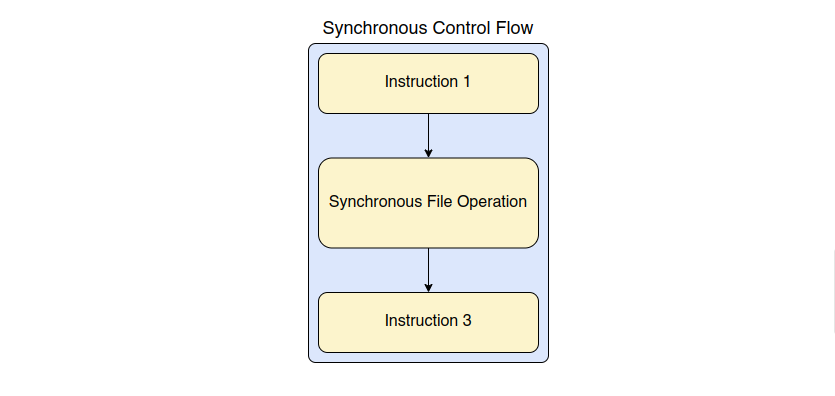Node.js: Built-in Modules
 Giver Kdk
Giver KdkTable of contents

OS Module
This module provides information about the operating system and computer specifications.
// Importing built-in os module
const os = require('os');
console.log(os.type()); // Tells base kernel of OS
console.log(os.version()); // Gives OS version
console.log(os.release()); // Tell OS release of base kernel
console.log(os.hostname()); // Tell main user name
console.log(os.platform()); // Tells if wondows, linux, apple, etc.
console.log(os.userInfo()); // Gives user ID, name and other info
console.log(os.totalmem()); // Tells total RAM
console.log(os.freemem()); // Tells available RAM
console.log(os.uptime()); // Tells CPU uptime
Path Module
This module is useful for getting information about file paths. Let's see an example of a 'sep' property that gives a path separator character for a specific platform.
// Importign path module
const path = require("path");
// Output: /
console.log(path.sep);
The 'join()' method is used to generate a path if we know the folder and filename:
// Joins the folders and file using the platform specific separator
let myPath = path.join("parent", "child", "file.txt");
// Output: parent/child/file.txt
console.log(myPath);
The'basename()' method gives the resulting file name if we already have the path:
// Gives the last final file name of a path
console.log(path.basename(myPath));
The 'resolve()' method can be used to generate an absolute path for a file:
// '__dirname' gives absolute path form home to current app and
// Remaining folders are resolved together to get absolute path
console.log(path.resolve(__dirname, "parent", "child", "file.txt"));
FS Module
The file system module provides methods for file handling. There are two methods of file handling using this module:
Synchronous Method
Asynchronous Method
Synchronous Method:
In this method, file handling is done serially and in a blocking way. No other line of code is executed until and unless the file operation(open/read/write) is complete.

Let's see an example of reading a file synchronously.
// Importing file system module
const fs = require("fs");
// readFileSync(filePath, encodingMethod)
let data = fs.readFileSync("./myFile.txt", "utf8");
console.log(data);
Now, file writing can be done as:
let message = "This is a text to be written."
// writeFileSync(filePath, Message, FlagObject)
fs.writeFileSync("./two.txt", message, {flag: "a"});
Here, the 'a' flag is optional and it indicates append mode. So, the content is appended from the end of the file every time we run this code.
Asynchronous Method:
This method is mostly preferred because file handling is done in a non-blocking way. Other lines of code can be executed while file operation is being performed in the background.

Let's see an example of reading a file asynchronously.
const fs = require("fs");
function handleRead(err, res)
{
if(err) console.log(err); // Check for error
else console.log(res); // Display response
}
// readFile(filePath, encodingMethod, callbackFunction)
fs.readFile("./one.txt", "utf8", handleRead);
In the asynchronous method, instead of assigning the file content to a variable, we need to provide a callback function to the 'readFile()' method which gives access to the file content. Similarly, we can perform the write operation as follows:
let message = "This is a text to be written."
function handleWrite(err, res)
{
if(err) console.log(err); // Check for error
else console.log(res); // We'll get no response on write
}
// writeFile(filePath, Message, FlagObject, Callback)
fs.writeFile("./two.txt", message, {flag: "a"}, handleWrite);
HTTP Module
This module allows us to create a server and listen to specified ports to serve the client. Let's see an example by creating a server and working with request and response.
// Importing http module
const http = require("http");
// Creatign a web server to process request and give response
const server = http.createServer((req, res) =>{
// Print request method: GET, POST, DELETE, etc.
console.log(req.method);
// Write some message on browser
if(req.url=="/") res.write("You are in home page");
else res.write("Oops. You are on the wrong page!");
res.end("\nEnd of Response!");
});
// Making the server to listen to port: 5000
server.listen(5000);
To see the output of this app, we need to open 'localhost:5000' in our browser. The 'createServer()' takes a callback function which allows us to process the user request and give a response according to the request. The 'res.end()' method indicates that we won't respond further.
Subscribe to my newsletter
Read articles from Giver Kdk directly inside your inbox. Subscribe to the newsletter, and don't miss out.
Written by

Giver Kdk
Giver Kdk
I am a guy who loves building logic.